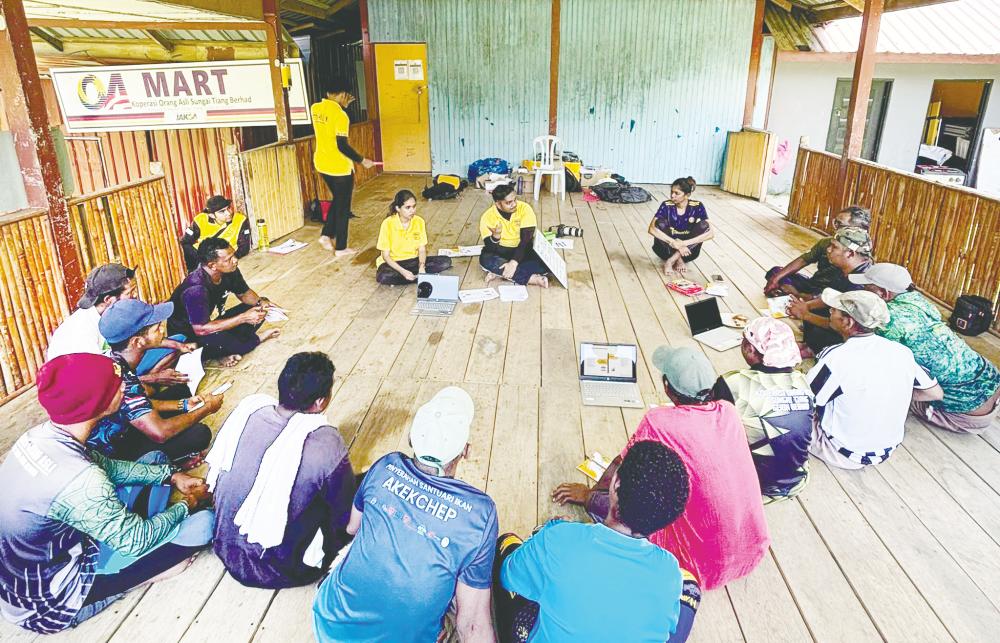PETALING JAYA: Despite achieving independence 67 years ago, the Orang Asli community continues to be among Malaysia’s most marginalised groups. Yet, their resilience, resourcefulness, and potential for change remain undeniable.
SOLS Foundation managing director Danutcha Catriona Singh is at the forefront of assisting the Orang Asli to overcome their limited access to education, economic instability and inadequate access to infrastructure.
“We support them by addressing their challenges through education, skills-building, and renewable energy.
“We also operate the Solar Academy which provides the Orang Asli and B40 group with hands-on training in solar energy installation, and certifies them as solar technician so they can secure stable jobs in Malaysia’s growing green energy sector.”
Danutcha said through its initiatives, SOLS Foundation is creating brighter and more sustainable futures for Orang Asli communities in Pahang, Perak, Negeri Sembilan, Kelantan, and Johor.
“In 2024, we launched the Kampung Solar Project which has expanded its reach to 1,633 homes in 45 Orang Asli villages, including 511 homes across 12 villages in Sabah.
“By providing reliable energy, the project improved living conditions and helped families save approximately 80% on energy costs.”
She said the milestone underscored its commitment to delivering sustainable energy, education, and essential services to Malaysia’s most underserved communities.
Danutcha said educational workshops complemented its effort, reaching 792 participants with training in financial management and digital safety.
She said in addition to technical training, workshops on financial literacy, budgeting, and digital safety empower community members to manage their finances effectively and avoid scams.
Health and safety sessions further enhance their well-being by equipping them with tools for a secure and sustainable future, while its holistic approach breaks the cycle of poverty by combining technical expertise with the green energy movement.
Danutcha added that many Orang Asli families struggle to meet their daily needs, leaving little room for education, while limited infrastructure and economic opportunities force children to work to support their families instead of attending school.
“This perpetuates the cycle of poverty, as young people lack the skills needed to uplift themselves. Financial instability and poor knowledge compound these challenges, making communities vulnerable to scams and fraud. We address these barriers by providing education, healthcare, and energy access to underserved villages.”
She said through the Kampung Solar Project, solar home systems offer safe and affordable energy, reducing dependence on hazardous alternatives like diesel generators and kerosene lamps.
Hadrirul Harun, 21, who graduated in October 2024 from Solar Academy, and is now an operations officer at SOLS Foundation, said he grew up in a Temiar village in Gerik, Perak without electricity or proper education.
“I knew I had to make the most of every opportunity. Thanks to the Solar Academy, I am now equipped with leadership, technical, and communication skills that helped me give back to my community.”
Since 2023, 60 students have graduated from the Solar Academy, with 38 securing jobs and achieving an average salary increase of 33%.
Seventeen of them joined SOLS Energy
Sdn Bhd, a leading provider of residential solar energy solutions in Malaysia, while others pursued jobs in installation, operations, and emerging fields such as drone technology.
Another Solar Academy graduate, Azwanizuan Shah Azham Shah, 23, from the Melanau community in Sarawak, said he struggled to pursue his dream of becoming an electrical engineer during the Covid-19 pandemic.
“Joining the academy changed my life. With hands-on training, I secured a role as a solar PV installer specialising in wiring, and my income grew by 50%.”









